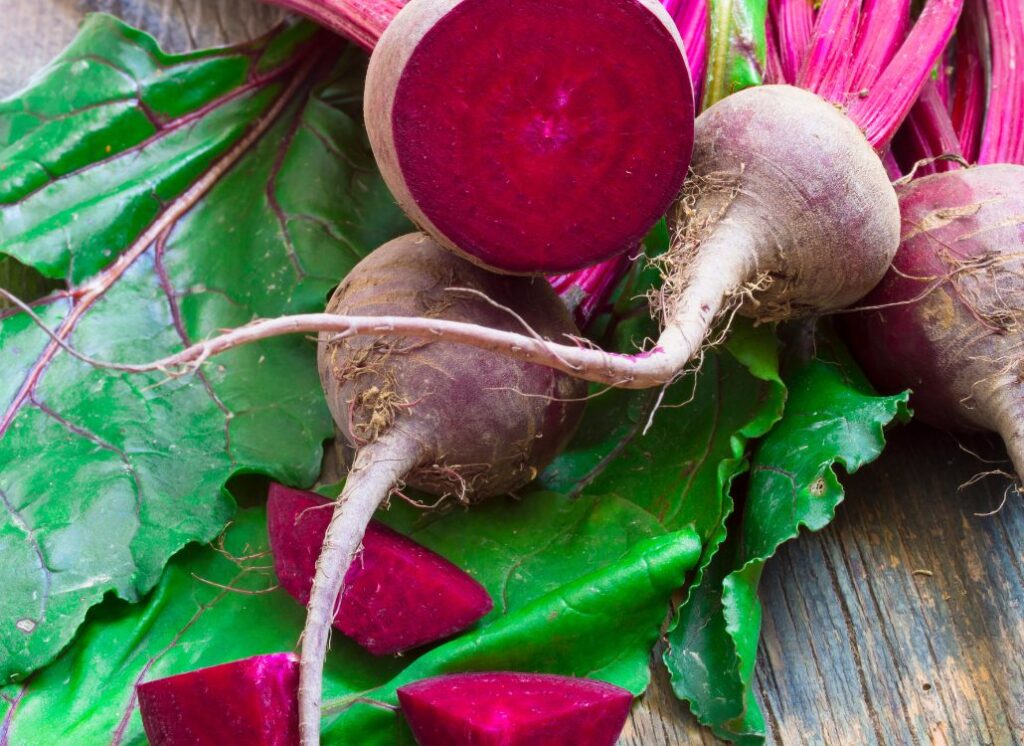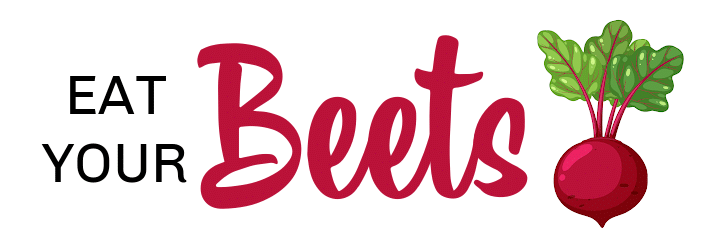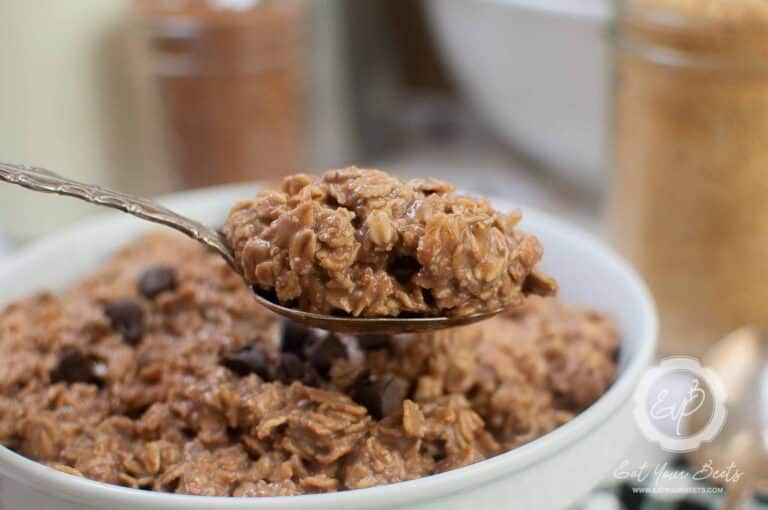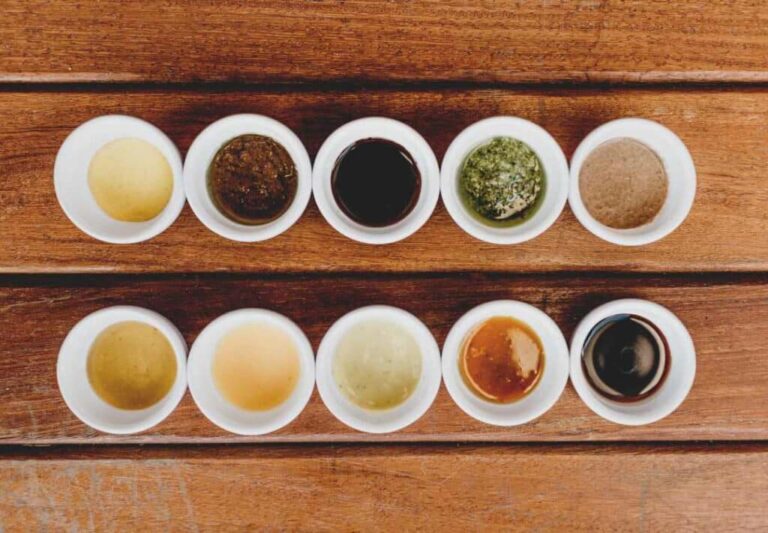Is Beetroot Good For You? Beets Nutrition Facts
Crunchy and earthy, beetroot has become quite the buzzword in the realm of health and nutrition. Yet, you may still find yourself asking, “Is beetroot good for you?”
This vibrant root vegetable has more to offer than just its stunning red hue; it’s packed with numerous health benefits that can boost your well-being. In this enlightening blog post, we’ll dive into the world of beet nutrition facts and explore this humble vegetable’s incredible qualities.
Unveiling its power as a versatile superfood, you’ll learn how beetroot can positively impact your health and enhance your daily meals. So, put on your apron and get ready to discover the secrets of this extraordinary root vegetable as we take a delicious journey through its marvelous benefits.

Contents
What Is Beetroot?
Beetroot, also known as the beet or table beet, is a versatile root vegetable that is packed with essential nutrients. It’s scientifically known as Beta vulgaris and is native to Europe, now cultivated around the world for its edible roots.
Beetroots are packed with fiber, vitamins, and minerals such as potassium, iron, and vitamin C. They have a distinctive earthy flavor and vibrant red color, which comes from the natural plant pigment betacyanin.
Beetroots are commonly consumed raw in salads, cooked, pickled, or even used in baking for their natural sweetness and color. The green leafy tops (beet greens) are also edible and highly nutritious.
Can You Eat Raw Beets?
Yes, beets can indeed be eaten raw. Their earthy, sweet flavor is quite enjoyable when they are fresh and raw. When eaten raw, beets retain all their nutritional value, which includes fiber, vitamins, and minerals.
Simply peel them, grate or slice them thin, and add them to salads or use in smoothies for a healthful addition to your diet.
Is Beetroot Good For You?
Beetroot is indeed good for you due to its rich nutritional profile. It contains essential vitamins and minerals, including potassium, folate, fiber, manganese, and copper, and is low in calories and fat.
This root vegetable has been found to support heart health, improve lung function during exercise, and enhance stamina. Additionally, beetroot carries powerful antioxidant and anti-inflammatory properties while promoting gut health and promoting good bone health.

Is Beet Juice Good For You?
Beet juice is notably beneficial for health because it contains vitamins, minerals, and antioxidants. It offers impressive health benefits, including enhancing endurance by delaying exhaustion, which can be particularly helpful during cardiorespiratory exercises.
Beet juice can also boost stamina, improve blood flow, and help lower blood pressure. Some research suggests that it supports liver health and may have antitumor and anti-inflammatory properties.

Beets Nutrition Facts
Here is the nutritional profile per 100 grams of raw beets:
- Calories: 43
- Water: 88%
- Protein: 1.6 grams
- Carbs: 9.6 grams
- Sugar: 6.8 grams
- Fiber: 2.8 grams
- Fat: 0.2 grams
Beets are also packed with a variety of vitamins and minerals:
- Folate (B9): Beets are high in folate, which is important for cell growth and metabolism.
- Manganese: A vital trace element found in high amounts in legumes, whole grains, fruits, and vegetables.
- Potassium: Consuming a potassium-rich diet can effectively lower blood pressure levels and contribute to improved heart health.
- Iron: An essential mineral, iron has many important bodily functions. It’s essential for the transport of oxygen in red blood cells.
- Vitamin C: This well-known vitamin is an antioxidant that’s important for skin health and immune function.
Health Benefits Of Beetroot
Beetroot is a highly nutritious vegetable that offers a plethora of health benefits. Below are some of the key health benefits of beetroot based on various sources:
Lowering Blood Pressure
Beetroot juice is known for its potential to lower high blood pressure levels, based on multiple studies and research. The richness of nitrate found in beetroot juice is key to its beneficial effects on blood pressure.
When consumed, these nitrates are transformed into nitric oxide, which dilates blood vessels and consequently helps to reduce blood pressure. Drinking a cup of beet root juice every day can lower blood pressure levels in persons with hypertension, research suggests.
Interestingly, both raw beetroot juice and cooked beets have effectively decreased blood pressure and inflammation. Therefore, incorporating beetroot juice into your diet could be a simple and natural way to manage high blood pressure.
Improving Blood Flow
Beetroot is a powerhouse vegetable that can significantly improve blood flow. This is mainly due to its high nitrate content. When you consume beetroot, your body converts these nitrates into nitric oxide, a molecule that dilates blood vessels and enhances blood flow.
This increased circulation can not only help with physical performance but also support heart health and brain function. It’s like giving your body’s highway system an upgrade, allowing for smoother and more efficient transport of nutrients and oxygen to where they’re needed most.
Maintaining Heart Health
Beetroots, especially when consumed raw, offer a wide range of health benefits that contribute significantly to heart health. Eating beets regularly can play an important role in preventing and managing heart disease, thanks to their rich nutritional profile.
The nutritional benefits of beets are attributed to their high content of inorganic nitrates, dietary fibers, vitamins, and minerals. Beet’s inorganic nitrates convert to nitric oxide in the body, relaxing and dilating blood vessels, improving blood flow, and lowering blood pressure.
This reduces strain on the heart and lowers the risk of cardiovascular diseases. Moreover, the dietary fiber in beets helps to regulate cholesterol levels, further supporting heart health.
Antioxidant Properties
Consuming beets in forms such as fresh beets, beetroot juice, or beetroot powder can offer a multitude of potential benefits due to their robust antioxidant properties and high Vitamin C content.
Antioxidants are crucial in protecting our cells from damage by inhibiting the oxidation process caused by free radicals. Beets are rich in these antioxidants, which fortify the body’s natural defense mechanisms against harmful environmental stressors.
Additionally, Vitamin C in beets is a potent antioxidant that helps prevent cellular damage causing diseases like cancer.
Furthermore, studies have indicated that the regular consumption of beets may lead to a reduced risk of certain types of cancer. This is likely due to the presence of betalains, compounds that have been linked to cancer prevention.
Improving Digestive System
Beetroot is a powerhouse of essential nutrients, including dietary fiber and vitamin C, which play vital roles in improving our digestive health.
Dietary fiber is a non-digestible carbohydrate that adds bulk to food, aiding smooth movement through the digestive tract. This aids in regular bowel movements and can prevent digestive conditions like constipation, inflammatory bowel disease, and diverticulitis.
Additionally, beetroot’s fiber content maintains a healthy weight and eliminates the risks of chronic diseases like heart disease and type 2 diabetes.
On the other hand, vitamin C, another key nutrient found in beetroot, supports the body in its production of collagen, a protein that helps heal the skin, blood vessels, and tissues lining our gastrointestinal tract.
Maintaining Skin Health
Beetroot, a nutrient rich vegetable, offers numerous benefits for skin health. Raw beets are an excellent source of vitamin C and aid in collagen production, enhancing skin elasticity and reducing signs of aging. Beet greens, often discarded, are also packed with skin-boosting nutrients and can be included in your diet. Eating beets regularly can lead to a noticeable improvement in skin texture and tone due to their high antioxidant content.
However, it’s crucial to safely eat beets, ensuring they are properly washed and cooked to avoid any potential health risks. Thus, the benefits of beetroot extend beyond just its taste, making it a valuable addition to a healthy diet.
Diabetes Management
Beetroot, a vibrant and nutrient-rich vegetable, can play a crucial role in diabetes management. Beetroot juice’s natural sugars are released slowly, maintaining stable blood sugar levels and reducing glycemic load.
Consuming beets as a dietary supplement can thus aid in controlling spikes in blood glucose levels, thereby managing symptoms of diabetes. The beets contain essential nutrients like fiber, which slow down the digestion of food and further regulate blood sugar.
Moreover, all the health benefits of beetroot consumption aren’t just limited to diabetes management. Regular intake can also promote overall health, thanks to its high antioxidant and anti-inflammatory properties.
Enhancing Liver Health
Eating beets, particularly in the form of beetroot powder or beetroot juice supplementation, can significantly contribute to liver health.
The beet plant, scientifically known as Beta vulgaris, is rich in a compound that not only promotes cardiovascular health but also aids in breaking down fatty deposits in the liver, protecting it from damage.
A study shows that beetroot’s hepatoprotective effect prevents fat from depositing in the liver, which is crucial for those combating non-alcoholic fatty liver disease. Furthermore, beetroot juice has been shown to reduce oxidative damage and inflammation in the liver. So, is beetroot good for you? Absolutely.
Weight Management
Is beetroot good for you in managing weight? Beetroot plays a significant role in weight management due to its unique nutritional profile. Both beet juice and raw beets are low in calories, making them a great addition to a calorie-controlled diet.
Despite being low in calories, beets are high in dietary fiber, which aids in promoting feelings of fullness. This can help reduce overall calorie intake by curbing unnecessary snacking and overeating.
Besides, the high water content in beetroot also contributes to a sense of fullness, further assisting in weight control. Moreover, the natural sugars in beetroot release slowly into the bloodstream, ensuring a stable blood sugar level and preventing sudden hunger pangs.
Possible Side Effects Of Beetroot
Consuming beetroot can result in a number of side effects.
One of the most common yet harmless reactions is a change in the color of urine and stools to pink or red, a phenomenon known as beeturia. This is due to the presence of betanin, a pigment found in beets.
Excessive consumption of beetroot may cause uncommon mild reactions like itchiness or rash. Sometimes, beetroot might cause low calcium levels and potentially damage the kidneys. There is also a risk of kidney stone development.
Which Beetroot Is Best To Eat?
When it comes to the best type of beetroot to eat, it often depends on your preference and the specific nutritional benefits you’re seeking.
- Red Beets: These are the most common variety and are rich in fiber, vitamin C, potassium, and manganese. They have a delicious earthy taste and can be eaten raw, roasted, or boiled.
- Golden Beets: Golden beets are slightly sweeter than red beets and have a more mellow, less earthy flavor. They’re packed with fiber, potassium, iron, and vitamin C.
- Baby Beets: These are simply younger versions of regular beets. They tend to be sweeter and more tender than their fully-grown counterparts.
- Sugar Beets: These are typically used for making sugar and aren’t generally consumed as a vegetable due to their high sucrose content.
- Beetroot Supplements: These are typically made from dehydrated beets and are a good option for those who don’t like the taste of beets but still want to get their health benefits. However, they may not contain all of the nutrients found in fresh beets.
Read more about different colors of beetroots!
Can Pregnant Women Eat Beetroot?
Pregnant women can safely consume beetroot in various forms, such as raw beets and beet juice, which are highly recommended due to their unique nutritional value. Beetroots are packed with folic acid, an essential nutrient that aids the baby’s neural tube development.
Moreover, they are also known to help regulate blood pressure, a common concern during pregnancy, thanks to their rich content of dietary nitrates. However, consuming them in moderation is important to avoid potential side effects like kidney damage.
How Do You Eat Beets?
Here are some great ways to incorporate beets into your diet:
Beet Greens
Don’t throw away the leafy green tops of beets! They can be sautéed in olive oil and garlic for a nutritious side dish or added to salads for a burst of color and nutrition.
Grate Raw Beets
Grating raw beets is a quick way to add them to your meals. You can toss them into salads, stir them into yogurt, or even use them as a garnish for soups.
Pickled Beets
Pickling is a delicious way to preserve beets and enjoy them year-round. You can use pickled beets in sandwiches, salads, or as a side dish.
Roasted Beets
Roasting enhances the natural sweetness of beets. Cut into chunks, coat with olive oil and seasonings, and roast until tender. They are a great addition to salads, grain bowls, or a side dish.
Cook Beets
There are many ways to cook beets. You can boil them until tender, steam them, or even microwave them. After cooking, they can be used in a range of dishes, from salads to soups.
Beetroot Soup
Beetroot soup, also known as borscht, is a traditional Eastern European dish. It’s a hearty, flavorful soup that’s perfect for cold winter days. Learn how to make beetroot soup!
So, Is Beetroot Good For You?
In conclusion, beets have numerous health benefits, making them a great addition to any diet. They are low in calories and high in vitamins, minerals, dietary fiber, and antioxidants, which help promote cardiovascular health, liver health and weight management.
Additionally, pregnant women can safely consume beetroot for additional nutritional benefits. There are numerous ways to incorporate beets into your diet, such as grating them raw, pickling them, roasting them, or cooking them into soup. All in all, is beetroot good for you? Absolutely!







One Comment
Comments are closed.